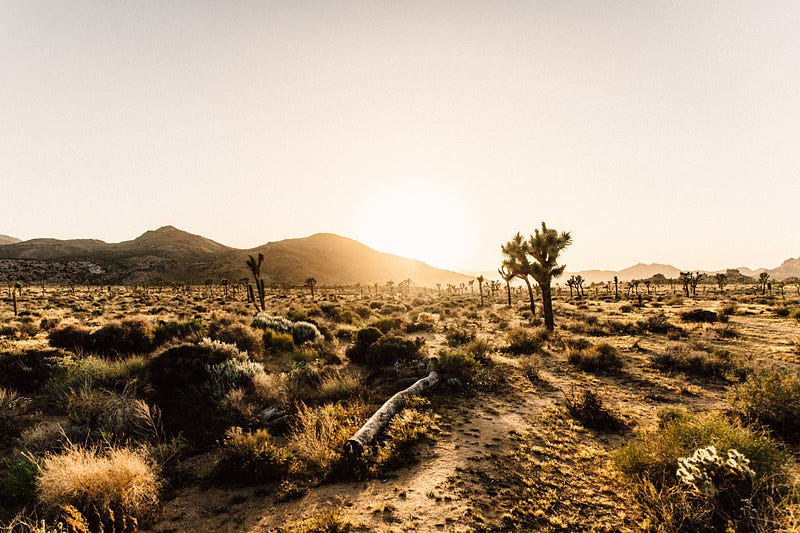
I am beginning to realize that the opening chapters of Genesis are more important than I ever could have thought. They are a poem, an epic poem, that tells the story of humanity. We find our ultimate and foundational identity of “image bearer” described there. In that poem we discover the roots of our fall from that identity and the foreshadowing of our redemption.
Two things have particularly stood out to me in these opening pages of the Bible. First, humanity has a vocation, men and women, to create. This is an idea that has been a part of my understanding of the Christian faith for a long time. What is new is that little word, “vocation.” I have often referred to what God sets up for us to do as a “calling.” But that’s not really the best word. It is a vocation.
Then God said, “Let us make humankind in our image, according to our likeness; and let them have dominion over the fish of the sea, and over the birds of the air, and over the cattle, and over all the wild animals of the earth, and over every creeping thing that creeps upon the earth.”
So God created humankind in his image,
in the image of God he created them;
male and female he created them.
God blessed them, and God said to them, “Be fruitful and multiply, and fill the earth and subdue it; and have dominion over the fish of the sea and over the birds of the air and over every living thing that moves upon the earth.” (Gen 1:26–28)
Humanity has a job to do and that is to create and care for God’s good creation. I am beginning to understand Jesus’ statement that the law can be summarized into two commands, “Love the Lord your God with all your heart, soul, mind, and strength; Love your neighbor as yourself,” in light of our vocation as image bearers. When we come to grips with the reality that every person we engage with is an image bearer and we also have as our “vocation” to care for the whole of creation, it begins to make more sense in my mind that we must love others as ourselves. I think in a very real way our vocation as image bearers is to love God and love people.
I think in a very real way our vocation as image bearers is to love God and love people.
The other side of this coin is what happened when humanity set aside its vocation. In that moment when Adam and Eve took and ate they did so because they “wanted to be like God.” They believed a lie. They set aside their vocation, they set down their God-given responsibility and placed themselves above their love of God and one another. The result? Shame and exile.
Up to that point in the story there was no shame. They were naked, they were exposed, and felt no shame. When they set aside their vocation which was rooted in their identity, shame was the result.
God held them accountable for their actions and exiled them from the Garden. This would be his mode of operation moving forward. When his people would set aside their vocation that was rooted in their identity he would exile them. They would experience a separation from God.
Yet, we see God do something interesting. First, he takes animals and creates clothes for Adam and Eve, covering their shame. He frees them from shame so they could once again experience relationship with him and one another. Second, he promises an end to exile. They even get a foretaste of this after they are exiled where God still spoke to them and their children.
Those were lots of words to set up the question, “Why forgiveness?”
Have you ever wondered why God forgave them or us? Why does God cover our shame? Why does God make a way back from exile?
I think we see the reason right back there in Genesis.
They heard the sound of the Lord God walking in the garden at the time of the evening breeze… (Gen 3:8a)
In the opening pages of the Bible we see an intimate and personal relationship between God and humanity. When God would go walking in the evening we get the sense that it was a walk with humanity. It says that God called out, “Where are you?” God was expecting to see Adam and Eve. He was expecting to walk with them and talk with them and be with them. There was an intimacy of relationship that God and people had.
Why did God cover their shame? Why did God make a way back from exile? Relationship. God’s desire for relationship with his image bearers was such that he was going to do what needed to be done to restore that relationship. Because God is God he was bound by his perfect justice. Therefore, there was exile. Yet, right from the start God’s first concern was to cover their shame. Before he sent the man and woman out of the Garden into exile, he covered their shame.
God deeply loves his image bearers.
He cares for us.
He wants to be in relationship with us.
So, he forgives us.
At the end of the story we read this,
And I heard a loud voice from the throne saying,
“See, the home of God is among mortals.
He will dwell with them;
they will be his peoples,
and God himself will be with them;
he will wipe every tear from their eyes.
Death will be no more;
mourning and crying and pain will be no more,
for the first things have passed away.” (Revelation 21:3–4)
Why does he forgive us? Because he wants to live with us. He wants to wipe away our tears.